Sunset Boulevard: a street notorious for night clubs, movie premieres, and busses ferrying around relentless, fanny-packed tourists as if they were Captain Ahab on the hunt for B-list celebrities. In this part of town, the standard fare comes in the form fast food chains, rooftop bars, the occasional dingy taco joint, and the sound of my car zooming towards Downtown LA. Though, today, I am staying in the belly of the beast a bit longer because there is a place that prepares locally caught fish, breaks down whole carcasses for their meats and charcuterie, grows a garden on their outdoor patio, and serves untainted uni, delivered direct from one of the few female sea-urchin divers out of Santa Barbara County. Welcome to Eveleigh.
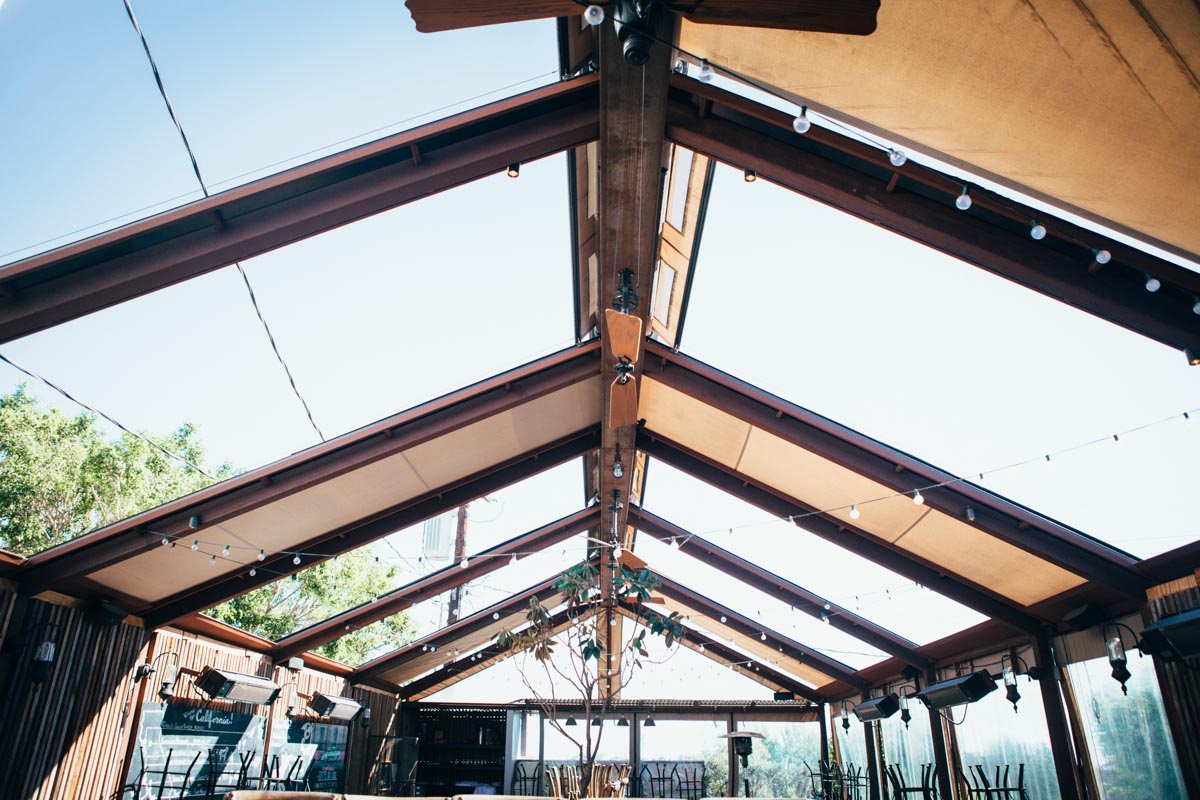
There is a story to be told within the airy walls that confine Eveleigh. Between the rustic decor of wooden panels and tables, and the tiny details that go unnoticed for those without a keen eye, Eveleigh is more comparable to a home out in the countryside than the glitzy facades that surround Hollywood. While being perched up on the side of a hill, the beautiful view of the city below and the glimmer of bright lights is a bittersweet reminder that one is a long way from anything rural… but never too far. This is California after all, and its riches don’t come in the form of Maseratis and Porches, but in the form of “farm to table.” Buzzword or not, farm to table is a methodology that is ingrained in the DNA of many chefs that romanticize a better tomorrow. Executive Chef of Eveleigh, Jared Levy, is no different.

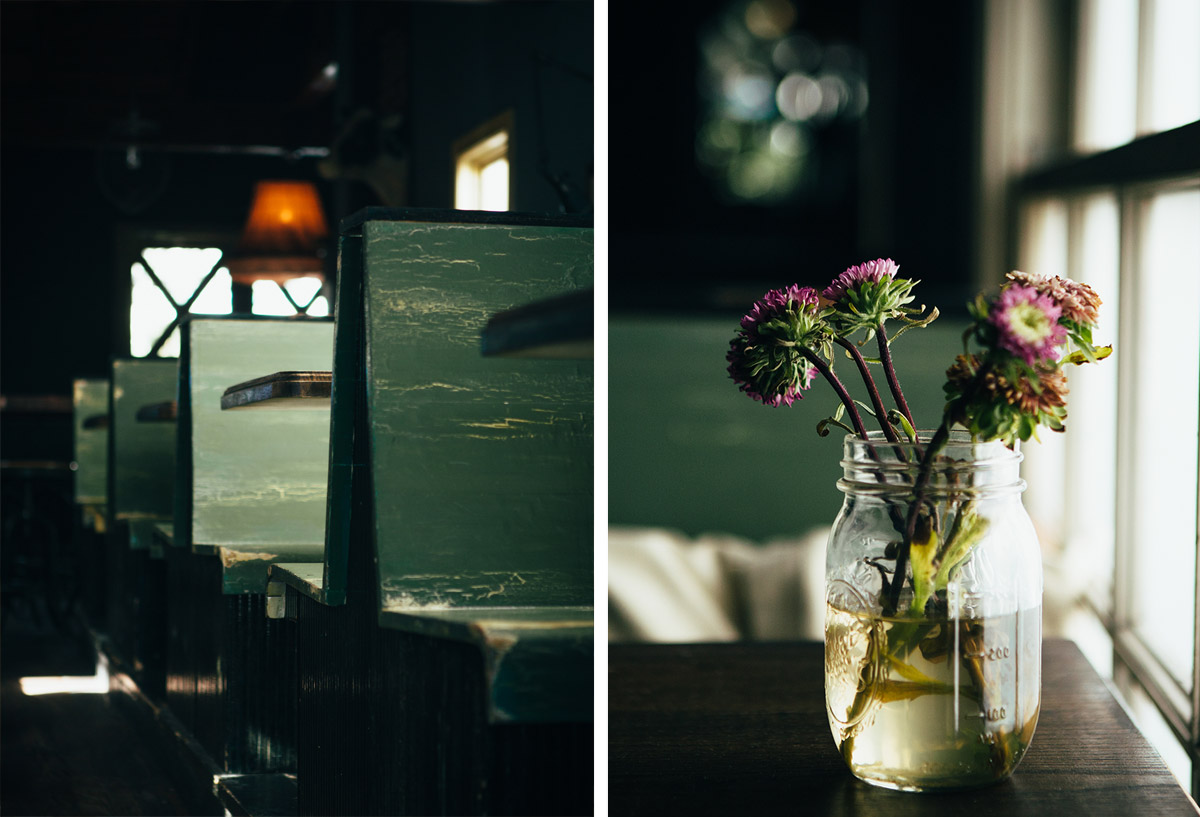
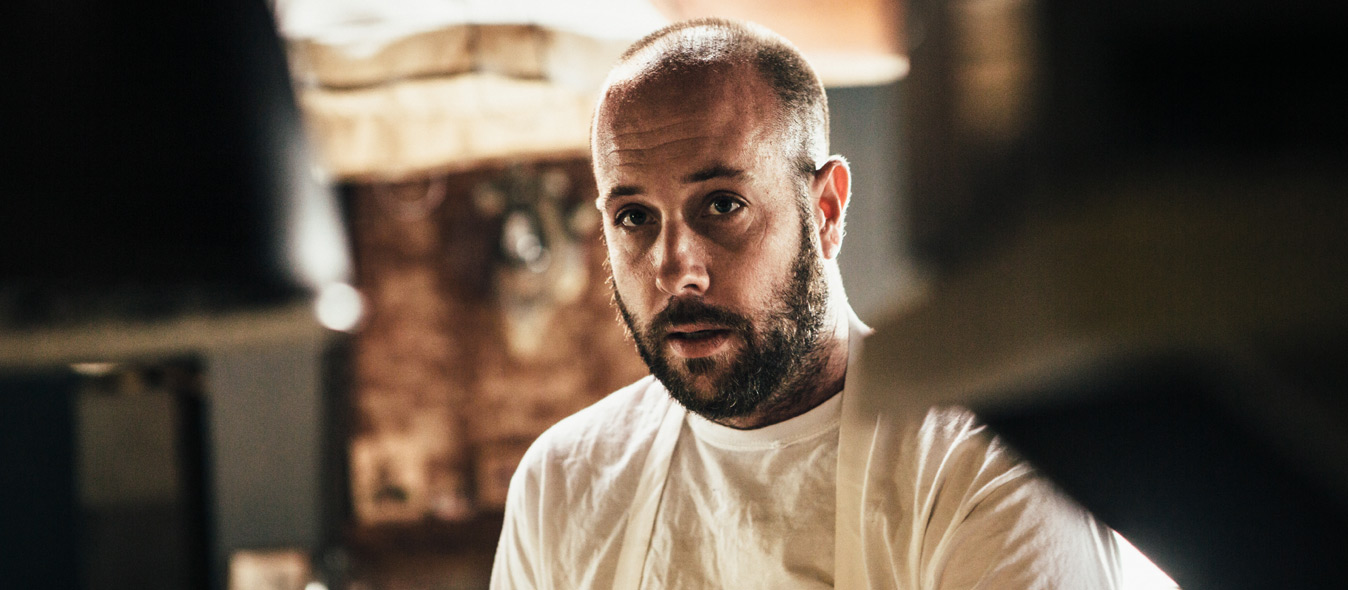
I make my way into the downstairs prep kitchen where I find Chef Levy deboning and slicing the evening’s fish. It’s a tight corridor that makes up the kitchen. It feels more like an underground bunker, but the feeling is all too familiar (and welcoming) to me for most of my encounters take place in such culinary sanctuaries.
While carrying his tray of fish and knives, Jared escorts me to the chef’s pass upstairs where it’s much quieter so I can pick his brain about what makes him tick. He continues to slice away.
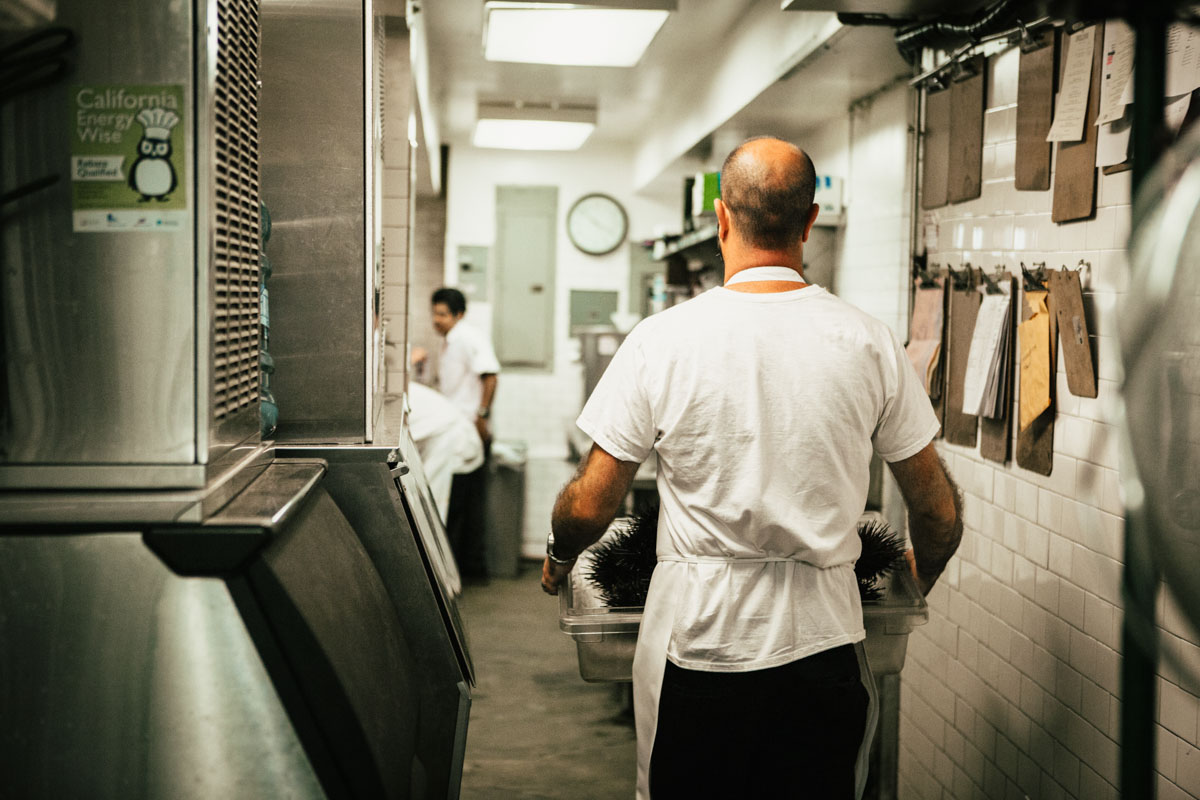
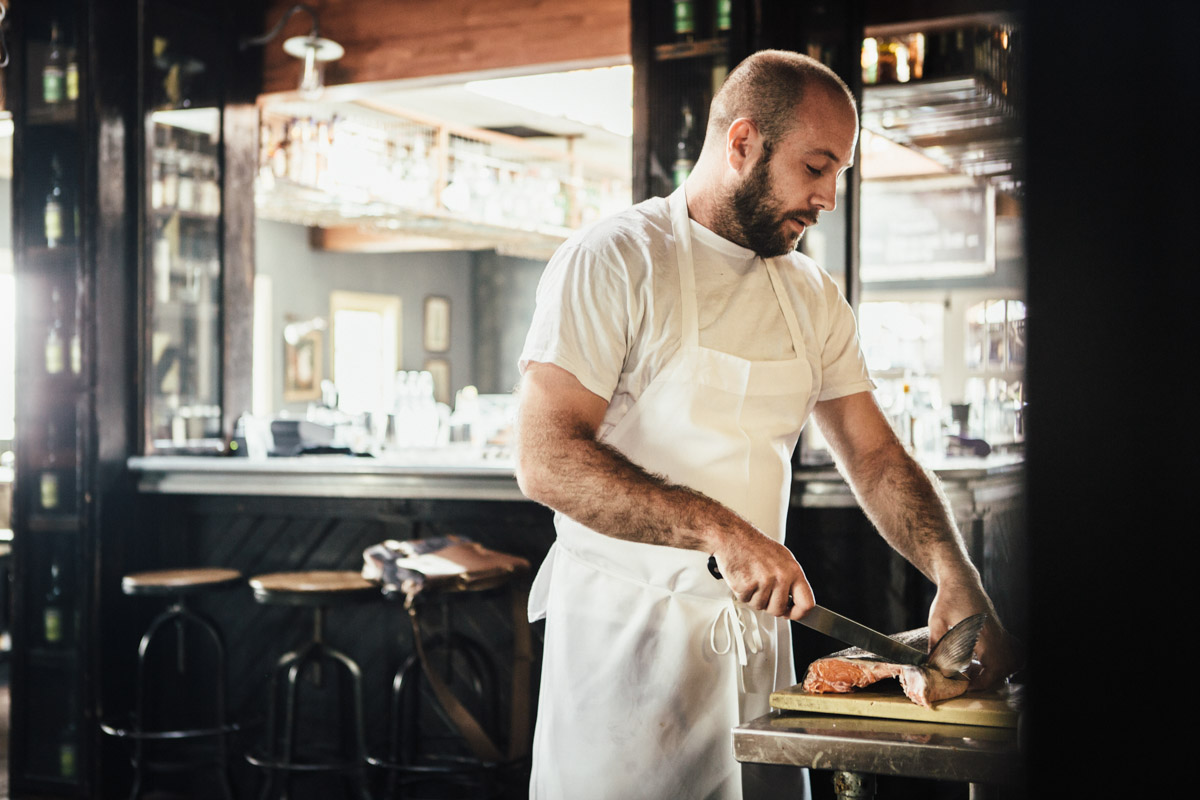
Let’s start from the beginning: Where did you grow up?
Jared Levy: I was born in Brooklyn. My family moved to New Jersey when I was three years old. So I grew up in Englewood, New Jersey, right across the George Washington Bridge from Manhattan. I moved out to California right after high school.
What brought you to California?
Well, I had always wanted to go to California since I was a kid. I loved watching Chips. I always planned to, but conveniently my dad moved out here for film editing a year or two before I finished high school when all the work dried up in New York. So it was easy for me to come out. In fact, my whole family ended up moving.
It worked out that I could go to a California State school because he had already lived here for a couple years. So we all left after high school and that was it. I never went back—only to visit.
What were you studying at the time? Was cooking always a part of the equation?
This was a long journey. I always wanted to be a chef. That was like a pipe dream. Whenever anyone would ask me as a kid, “What do you want to be?” I always said wanted to be a chef. I’ve loved cooking my whole life, but I never knew how to get into it. I never had a mentor or anything when I was young. So I didn’t do it.
I studied all kinds of things. I ended up getting a degree in East Asian studies in Japanese food, Japanese culture, and studying Japanese religion. I ended up getting that degree and that was a way to go and live in Japan after college, which was my ultimate goal. When I went there and did that, it enamored me even more with food—and Japanese food, specifically.

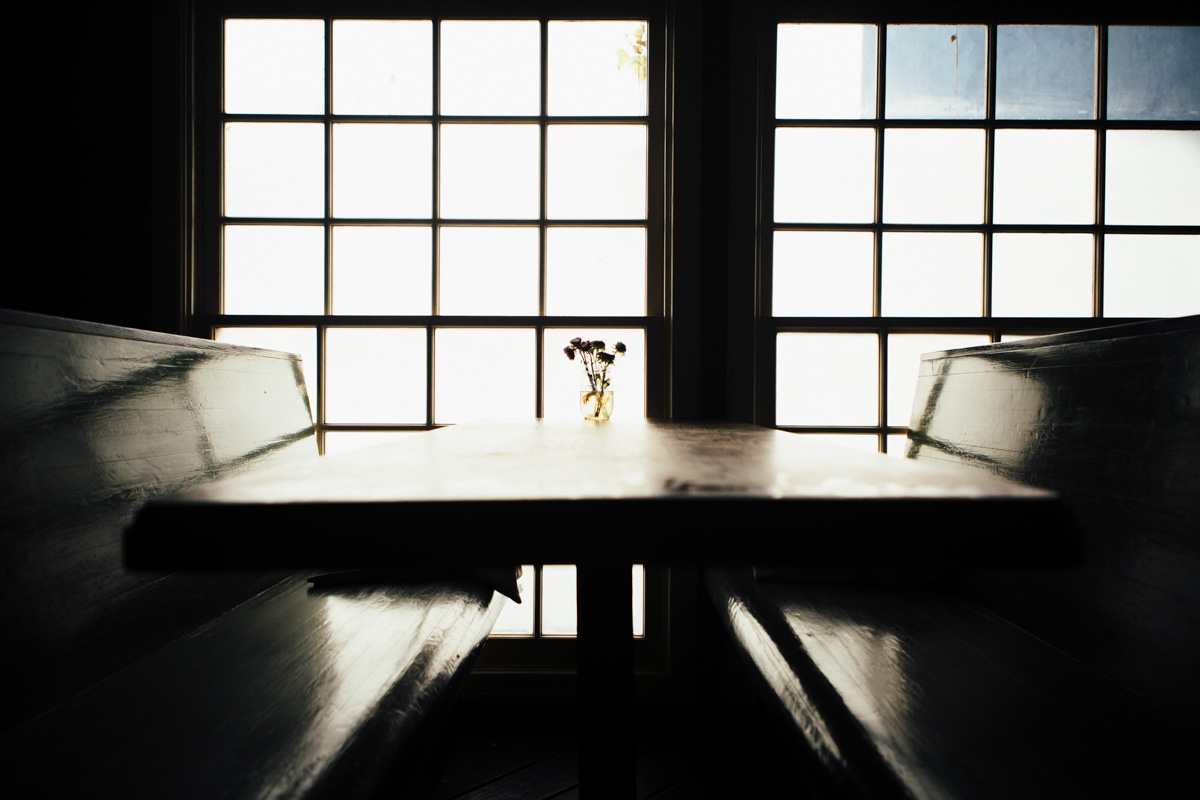
Then I came back and I needed money, so I worked in banking. And before I studied Japanese, I was on my way to get a degree in computer science. I was at UCLA School of Engineering. I was there three years and I liked it, but I got bored with that and I didn’t want to stare at a computer my whole life. So I switched to my side thing I was studying. All the math courses I had already taken were how I could get a job in banking when I came back. But I hated that and I was going nowhere. I would’ve had to go back to business school and I didn’t want that.
After all that time, that’s what made me pull the trigger. I was like, “You’ve got to get your life together.” I took the LSATs, and I was like, “Unless I get into UCLA, I’m not going to go.” Or USC. And I got waitlisted. But I wanted to decide now and I had to do something, so that’s what made me go to culinary school.
I thought I should do what I had always really wanted to do. Not that I recommend culinary school for everybody, but for me at the time it was the right decision. So I went to culinary school in Pasadena, California, and I’ve been cooking ever since.
How would you describe the process of finding your own cooking style?
Honestly, I’ve had a couple of styles. First, it’s what you’re interested in at the time and, second, if you’re working in a restaurant somebody else owns then you have to consider that they have a vision. So what I was cooking a lot before this was influenced by my time in Japan. Not fusion food—I wouldn’t say that by any means—but the ingredients and techniques were more stuff that I saw or enjoyed while I was in Japan.
And I still love those flavors. But when I took this job here, there was a definite vision of doing this more old school-style cooking with more Southern European influence. There’s almost a country vibe to the restaurant, and the ingredients we find are things you could find in the country. It’s more rustic style.
Now, after all these years, we’ve gotten back to a lot more seafood again. We started doing this great quality stuff and realized that we could also get amazing seafood, besides grown animals from farms locally. Stephanie [Eveleigh’s fish provider] in the last year has really stepped it up with what she’s doing. Before she just had urchin and crab; now she’s catching all these other fish like cod, Cabazon last week, mackerel this week. She’s brought in abalone. She’s really expanded the products that she has, and it’s renewed my original passion for seafood.
And although we’re still doing all the butchery, all the charcuterie—we’ll make sausages and smoke that today, and I love and we’ll continue that—we’ve really been able to do a lot of great seafood, which is nice. It’s kind of come full circle for me.
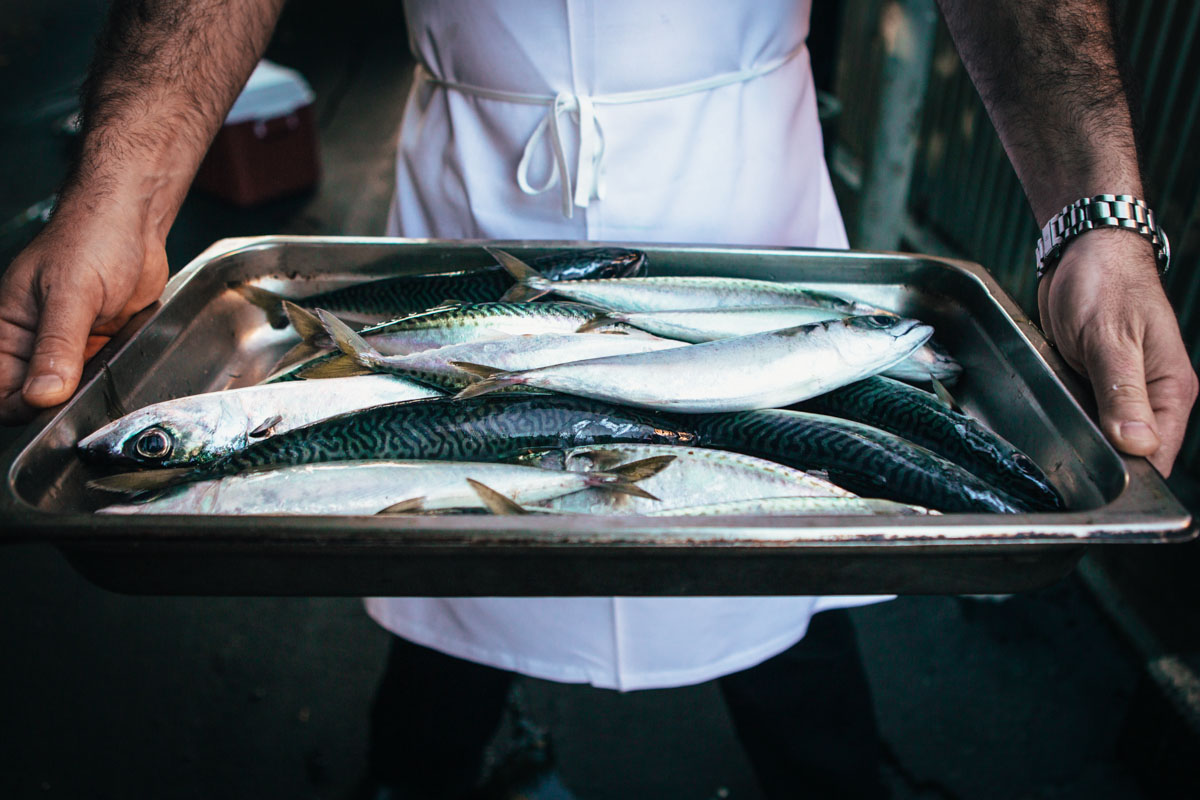
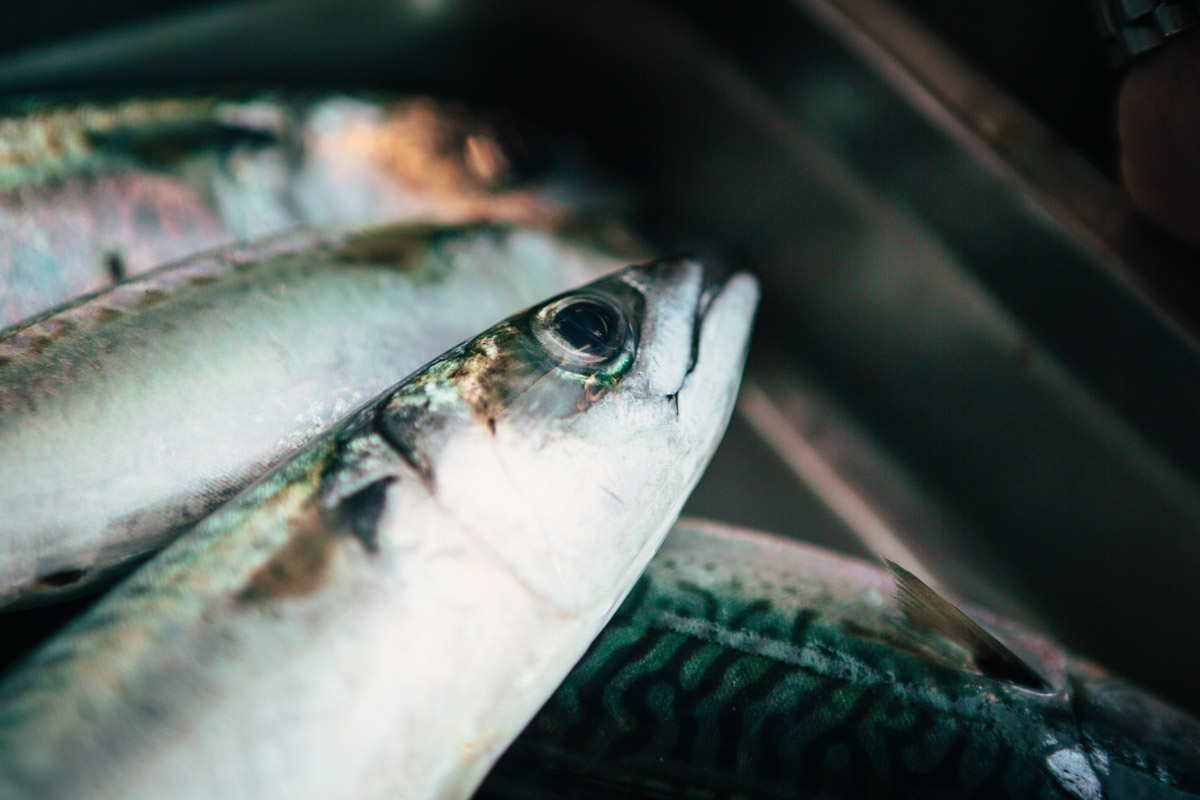
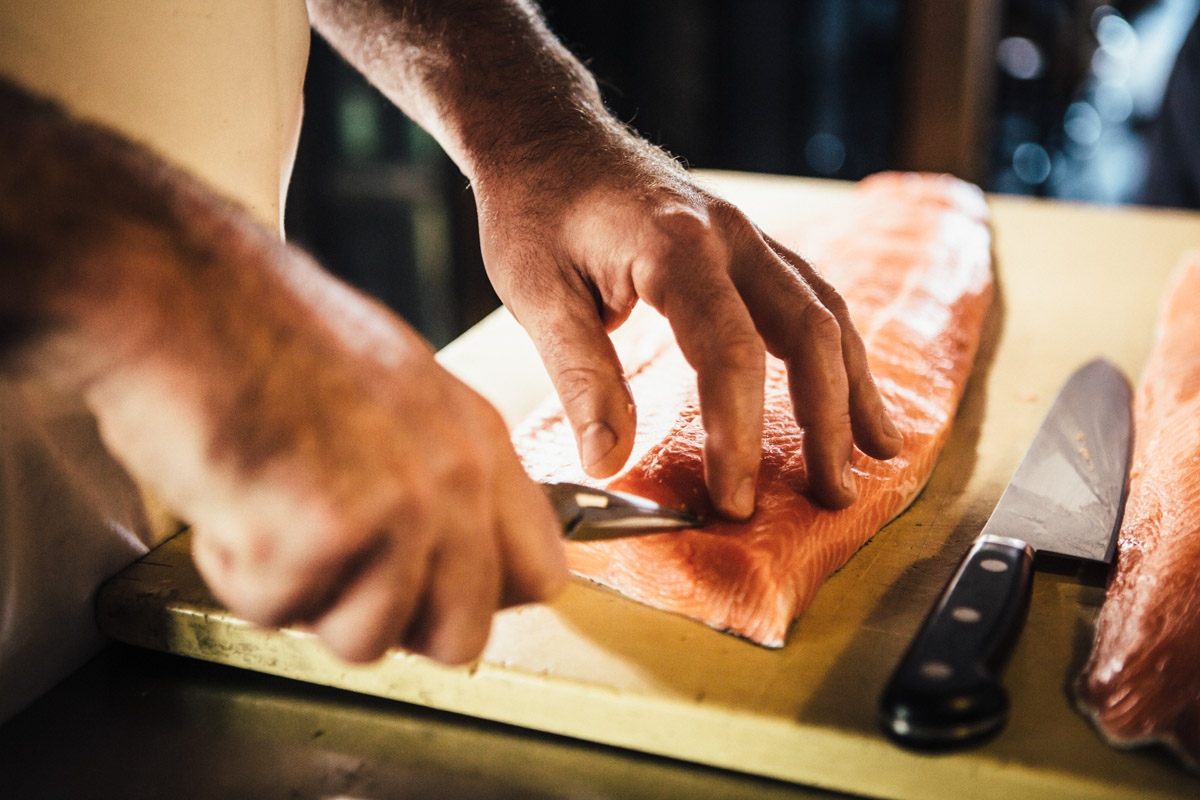
How do you tailor your dishes based on the fish you’ll receive? And how adventurous can you get?
First of all, you’ve got to see what it is and what shape it’s in. Everything Stephanie brings is treated immaculately, because that’s her whole thing. She takes the time to treat it right, and she only wants to sell it to people who are going to then treat it right afterwards. That’s the relationship we have and that’s why it works. They’ve figured it out with sushi and sashimi. If the seafood is right, you can serve it raw; that’s kind of the best thing you can do. That doesn’t necessarily take away from being a chef just because you didn’t cook something. You can cook a lot of stuff around it.
So we try to cook fish as little as possible. Sometimes we’ll cure it overnight or for a few days, as an alternative to cooking it. But often we do have to cook it. So we just have to look at the product and decide what to do with it from there.
Then, we just look for the best stuff we have—whether it’s from the farmer’s market or from our farmer, Sabrina—that will complement that. That’s how I always work. Everyone has a different way with how they formulate dishes. But I like to look at the protein, get a feel for it, and then find what I have in-house already to complement it. We can always find something good to serve.
The next day—after that night—we can think about what went wrong, what was right about it, and then try to procure things we thought would be better with it. But there is always plenty of stuff to serve. Put it on the plate, make it delicious, and be thoughtful about it. Dishes take time. The best dishes, I think, take time to come together. And that’s part of the fun and part of the process.
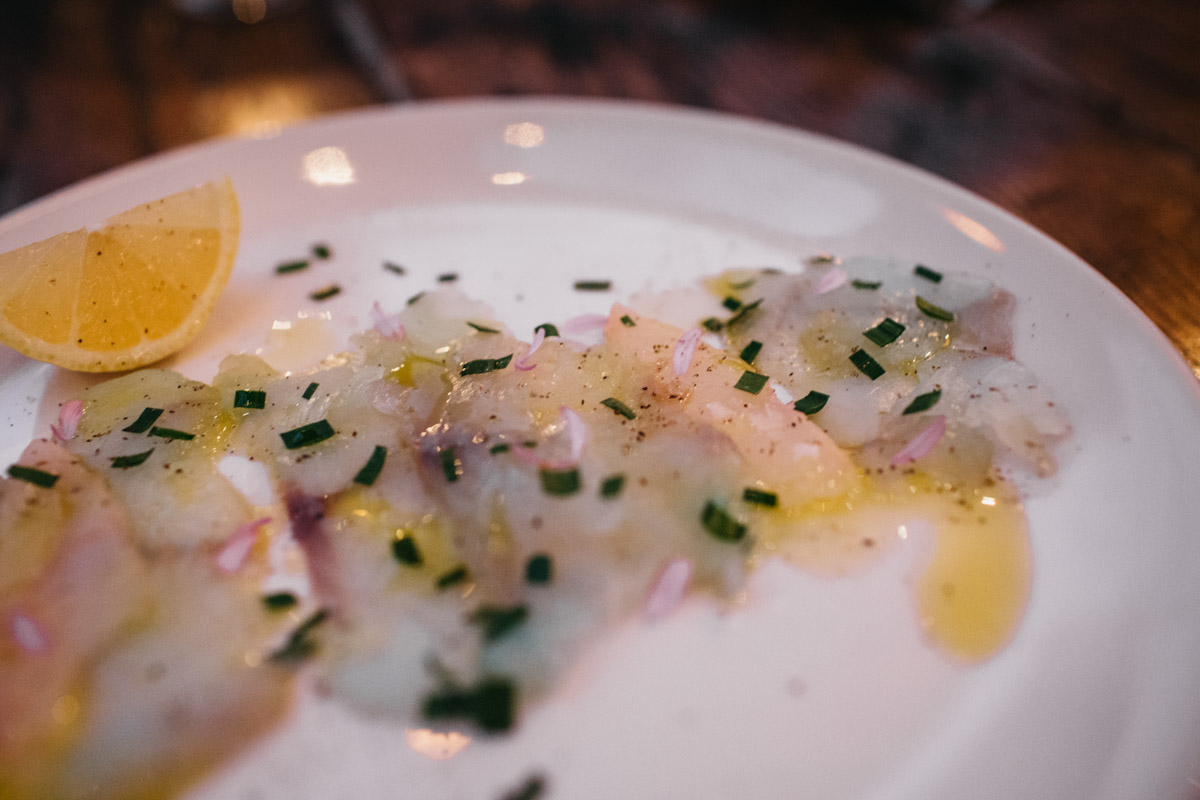
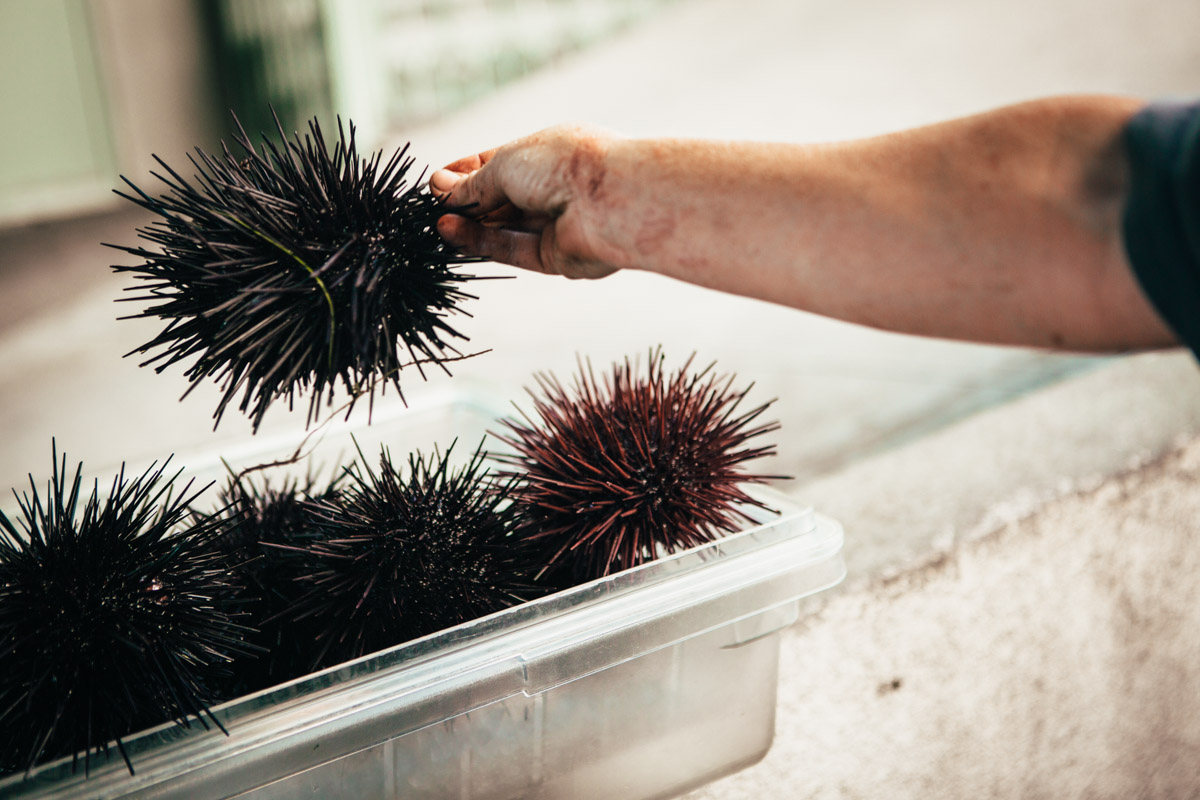
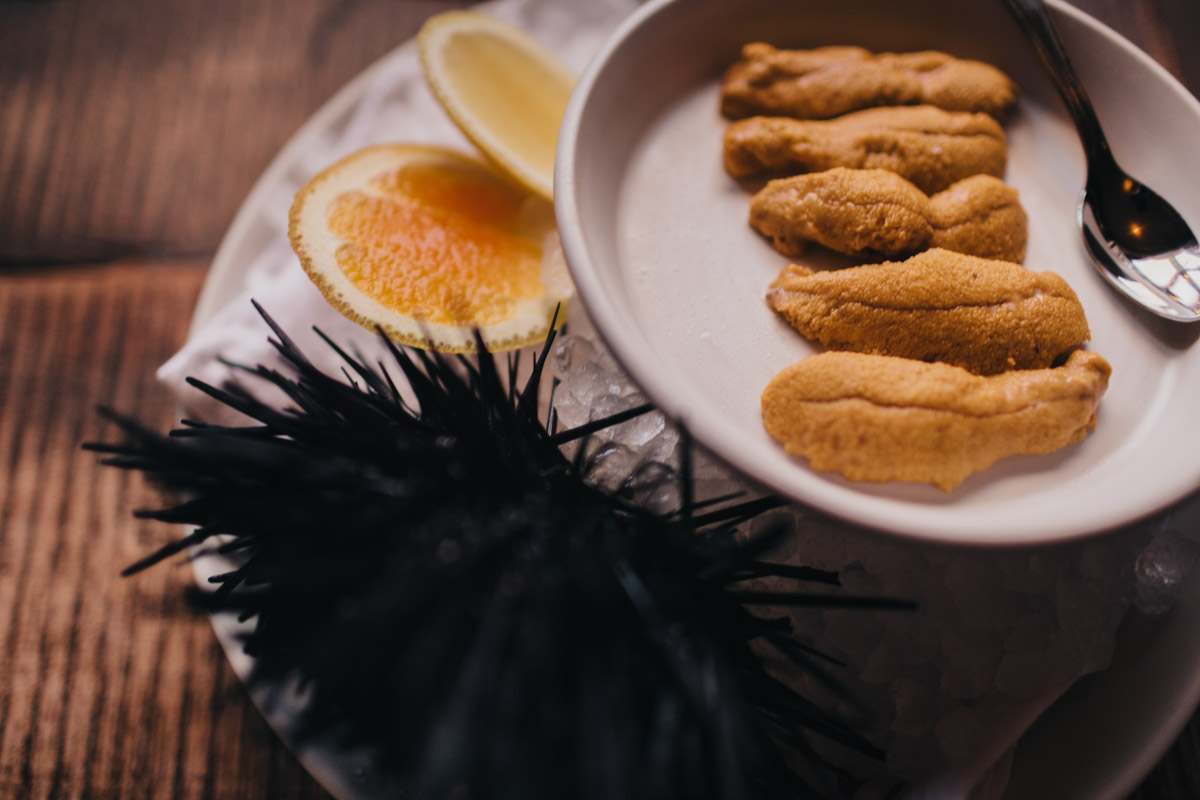
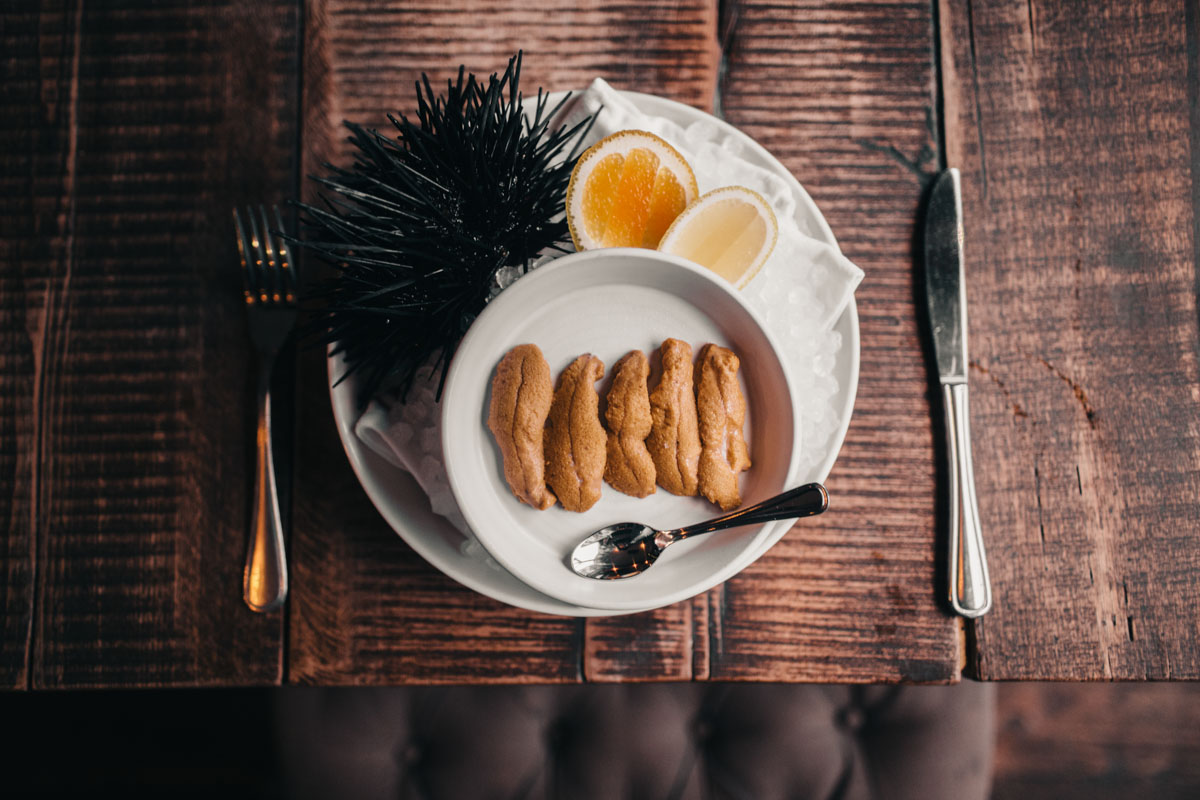
From a sustainability standpoint, do you think it’s the chef’s role and responsibility to be as sustainable as possible? Or when does achieving flavor trump everything else?
For me, I think that’s a role. That’s important to me. There’s no necessary code of ethics that you must follow. It’s not like being a doctor where you’re supposed to act a certain way. There are chefs who are into that, and there are chefs who just don’t give a fuck. They’re just there to make money and to sell crap as cheap as they can. I don’t believe in that. I think my two things are to be an educator for the cooks and the people eating, and to introduce to new things, a new style, a new taste; and to educate people on what it means to be ethical about it, whether that’s sustainability, or whether that’s buying things from the right people and supporting businesses or people I believe in.
That’s what it comes down to for me. It’s not just treating the earth right or killing off a species, it’s also finding people who have a similar thought process and supporting their business rather than someone who’s usually a lot easier to get stuff from. It’s a lot more work to get stuff from people that have that kind of sensibility.



In California, why wouldn’t you, you know?
We all went to Utah to do a pop-up at Sundance last year, and you can’t get anything out there. Everything is crap; everything is from Sysco. We have it so good out here. All I wanted to do when I came back was eat some salad.
In order to pull off our pop-up, we rented a Ryder truck and filled it with vegetables and lots of stuff from here and drove it out ourselves because there was no way to get the stuff we wanted there. We had to FedEx some stuff too. In order to be able to serve our type of food and what we’re about, we actually had to drive the food there ourselves.
There’s more premium involved by doing this. Someone was like, “Why does it cost more if it’s local?” It does because when you involve big corporations and middlemen and they buy in bulk and use pesticides, it may be coming from farther away—another country or another state—but it’s cheaper because they turned it into a business and figured out how to make it cheap.
The only thing that deters people from doing local is it’s more expensive—and it’s takes more work. You’ve got to be willing to be on the phone. You’ve got to be willing to email all the time. You’ve got to be willing to talk to them. You’ve got to be flexible when what you expected to get that day doesn’t show up because she had a rough day at the seas or because her truck broke down or because the fish didn’t bite. You’ve got to be flexible and ready to do something else. And that’s the kind of restaurant we are. We change the menu every day—sometimes a lot, and sometimes a little. But we have the flexibility to work with what we can get from our local purveyors at the moment.
If you have a restaurant that always serves chicken fingers every night, you’ve got to get those chicken fingers. If you have a plastic menu that never changes, you’ve got to have what’s on the menu. If you print it on paper or write it on a chalkboard or verbalize it to everyone every day, then you can do whatever you want.
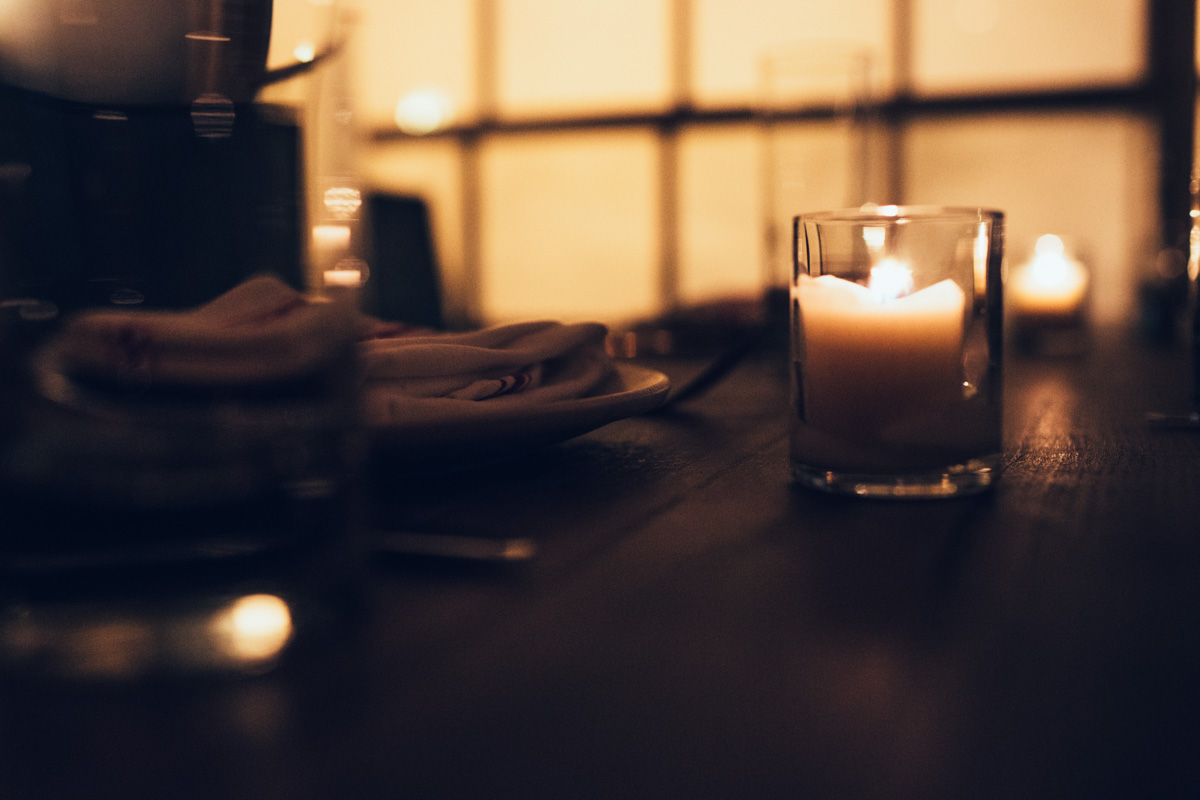
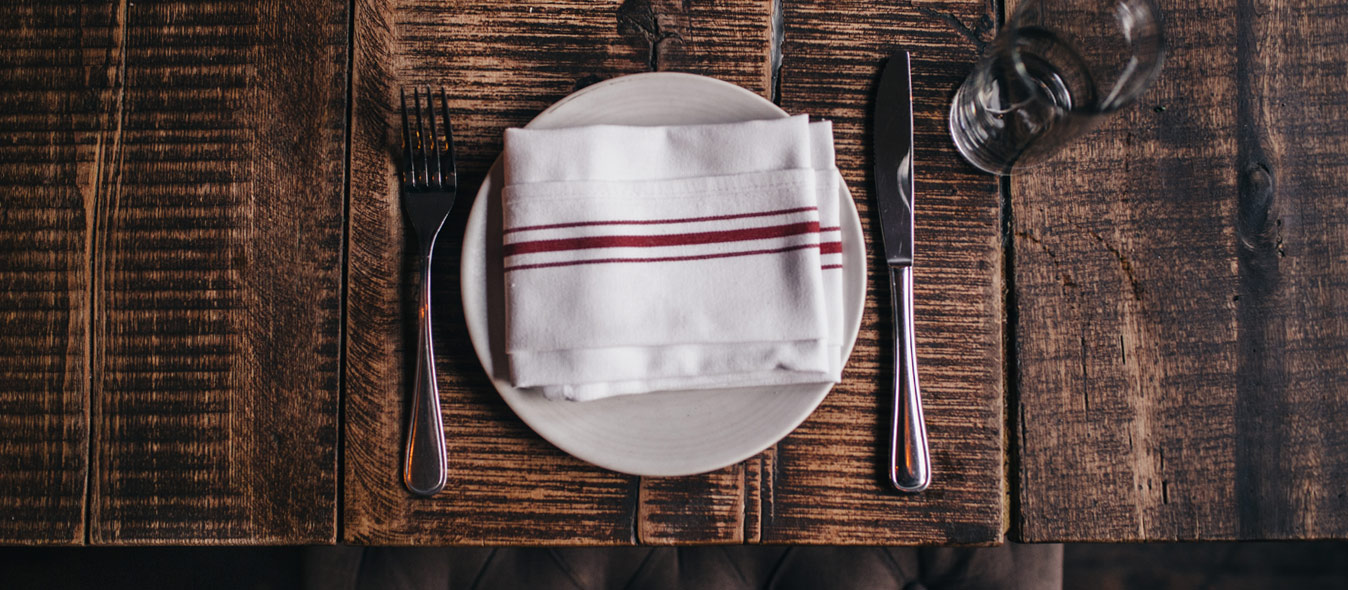
Who inspires you and who would you want at your dinner table?
First, let me preface that by asking—and I had this dilemma when I was younger—where do you work and who are your customers going to be? I want to do stuff that’s approachable for anyone, meaning pricewise. Sometimes people say Eveleigh is so expensive, but I still don’t believe that. You could blow a lot of money here if you wanted a bottle of wine or a lot of drinks. Or you could spend very little and still eat really well here. I think sometimes people get caught up with having such a good time here and then they get the bill and it’s higher than they thought it would be. But you do not have to spend a lot to eat here and try this food.
But if you’re going to do good stuff and use good products and support the right businesses, it’s still a business. Walking that line of making it approachable price-wise and working in an environment that’s not too stuffy—that’s why I like working here too, rather than going back to fine-dining table service where people feel they have to dress up or younger people aren’t necessarily going to come and people can’t bring their kids. My daughter has been here in the late evening. I like working and cooking at a place that’s approachable for everyone.
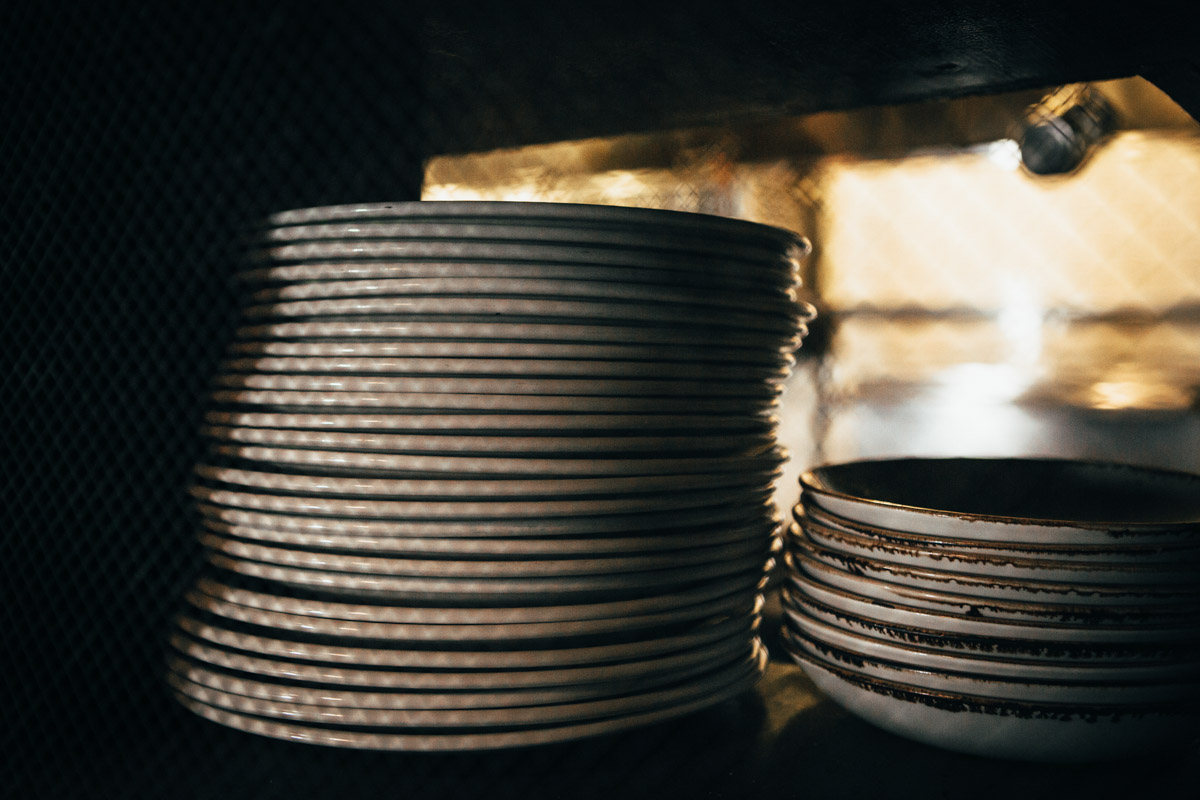
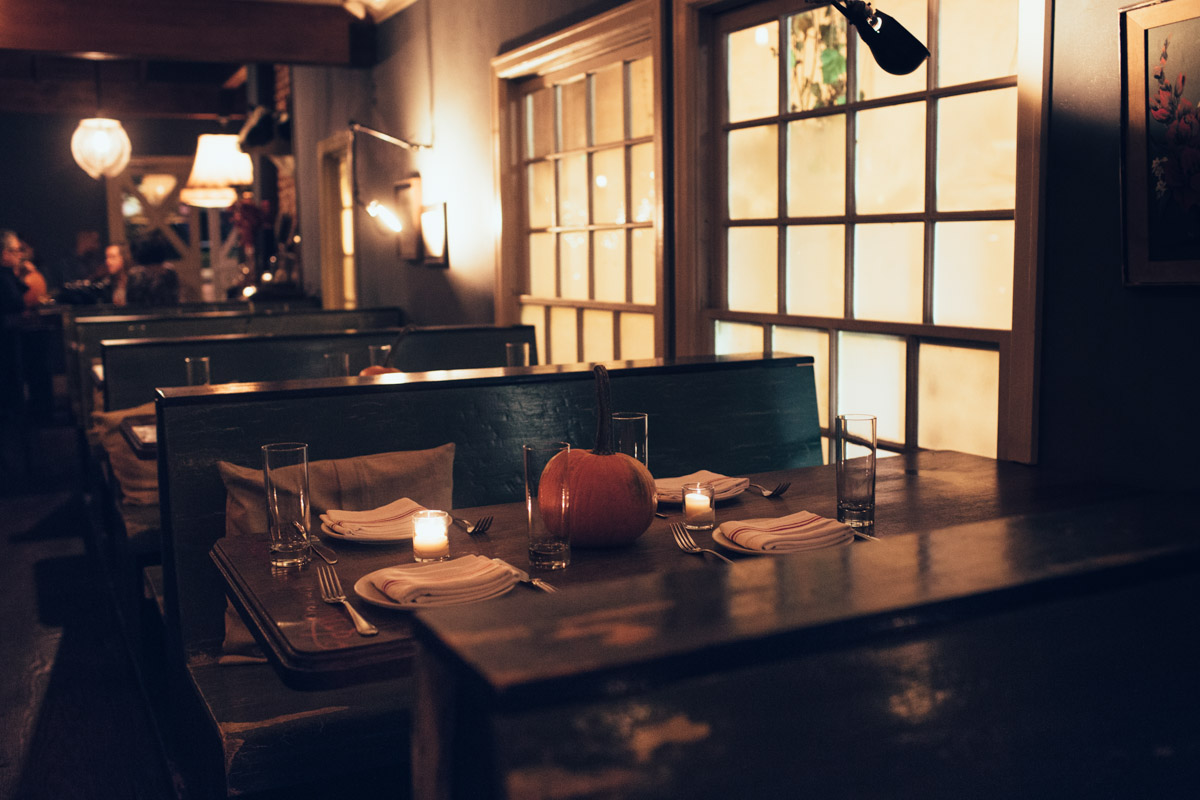
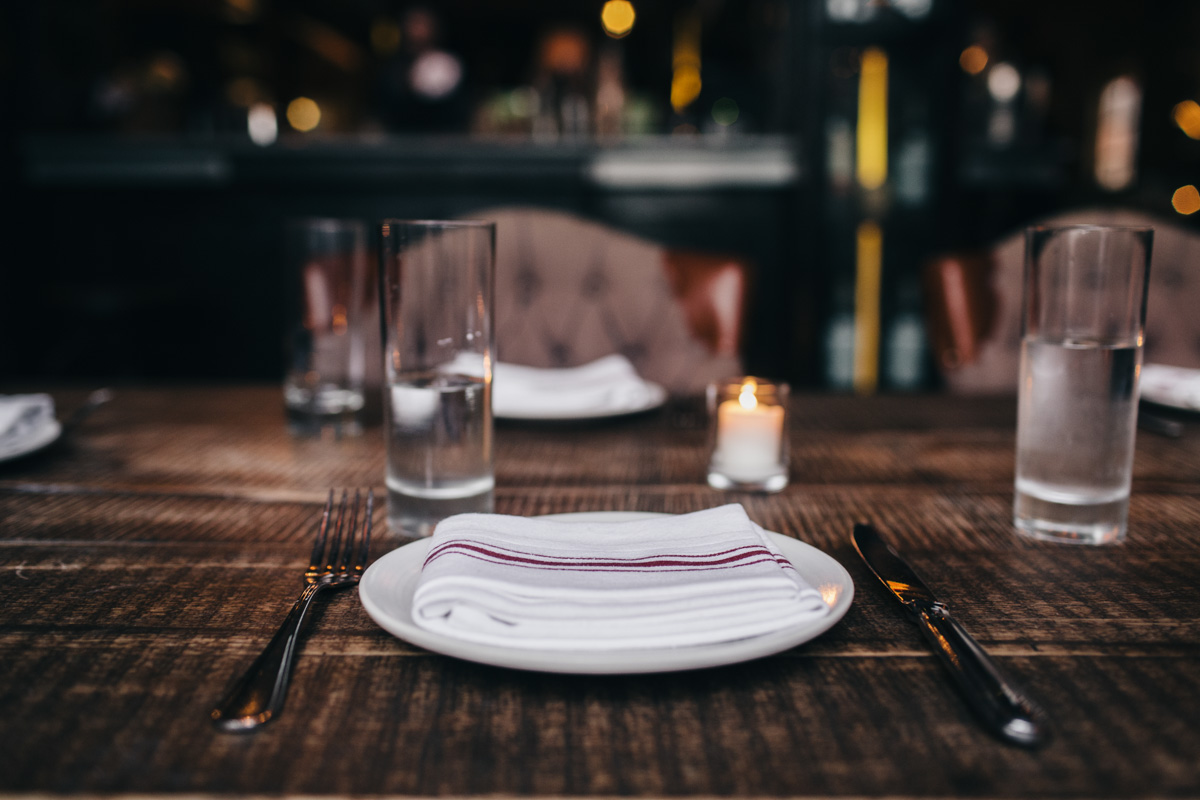
As for who I would want to eat the food, the first thing I can think of is one of my inspirations, a chef in Japan when I lived there. This is before I was cooking when I went to Japan after studying. I went with the JET program to teach. It was a way to go to Japan and live there for free. And I’ve always liked teaching. That’s kind of my thing. But I happened to be teaching English. I went to a really small town with no white people, no foreigners basically. Only Japanese. A little fishing town. There was a really great restaurant there; it has just 12 seats, Japanese-French bistro, with one chef. He lived upstairs with his family. They would come downstairs. They had a bar with maybe six seats at the bar and maybe six seats at a little table. He was doing amazing food and I got to meet him because whichever foreigner was in town ended up working as his translator because he liked to print an English menu so people coming from distances to the town could eat at his place.
The main reason people came to his place from miles around is because he had the only Guinness on tap in about a 200-mile radius. He had Guinness, he had it shipped in, and he had it on tap at all times. Anybody who wanted Guinness in Japan within those 200 miles came to his place and paid for it. Also, he was a great chef.
He always knew I loved cooking and loved going over the menu with him. I’d get behind the bar and help out a little bit. He knew I was passionate and that I’d always wanted to be a chef, but he never saw what I ended up doing and that it actually worked out. He knew bits and pieces, but we’re not really in contact anymore. Every couple of years or so I hear something via email, but where he is they don’t really use websites or anything. He’s one person I’d like to have at the table so he could see what actually materialized.
I used to revere these people and think, “I could never do what he does. I could never get to that level.” I’m at a point now—not to toot my own horn because you should always be learning; you should be learning every day as a chef—where I’m proud of what I’m doing, and I’d like for him to be able to see it.
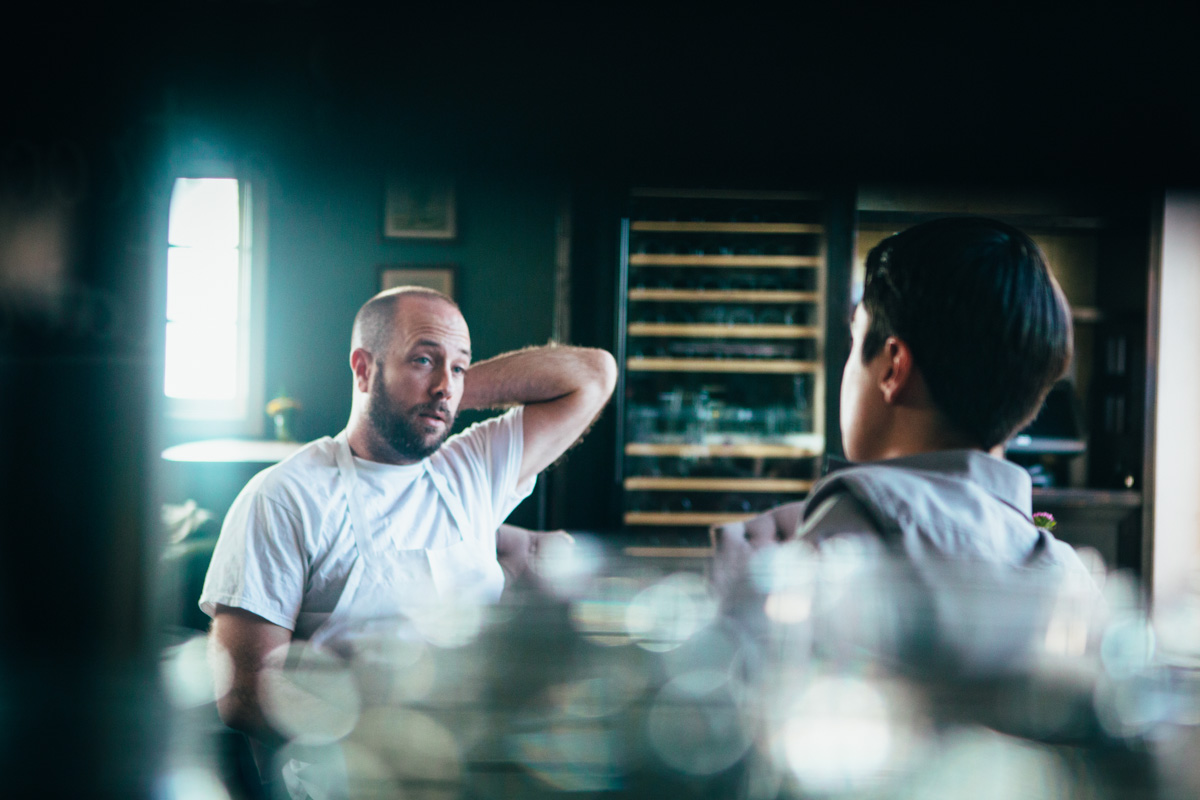
Who else? I guess he’s the only cook I’d need to impress. I’ve worked with a lot of chefs, and either they know or don’t care. I don’t need to impress anyone. But I’d like to show him that he inspired me so much. He never even saw that I started in this career or what’s happened since.
I’m sure there are lots of people, but he’s pretty much the only one that I think, “If he only knew what influence he had on me.”
—
Eveleigh
8752 Sunset Blvd
Los Angeles, CA 90069





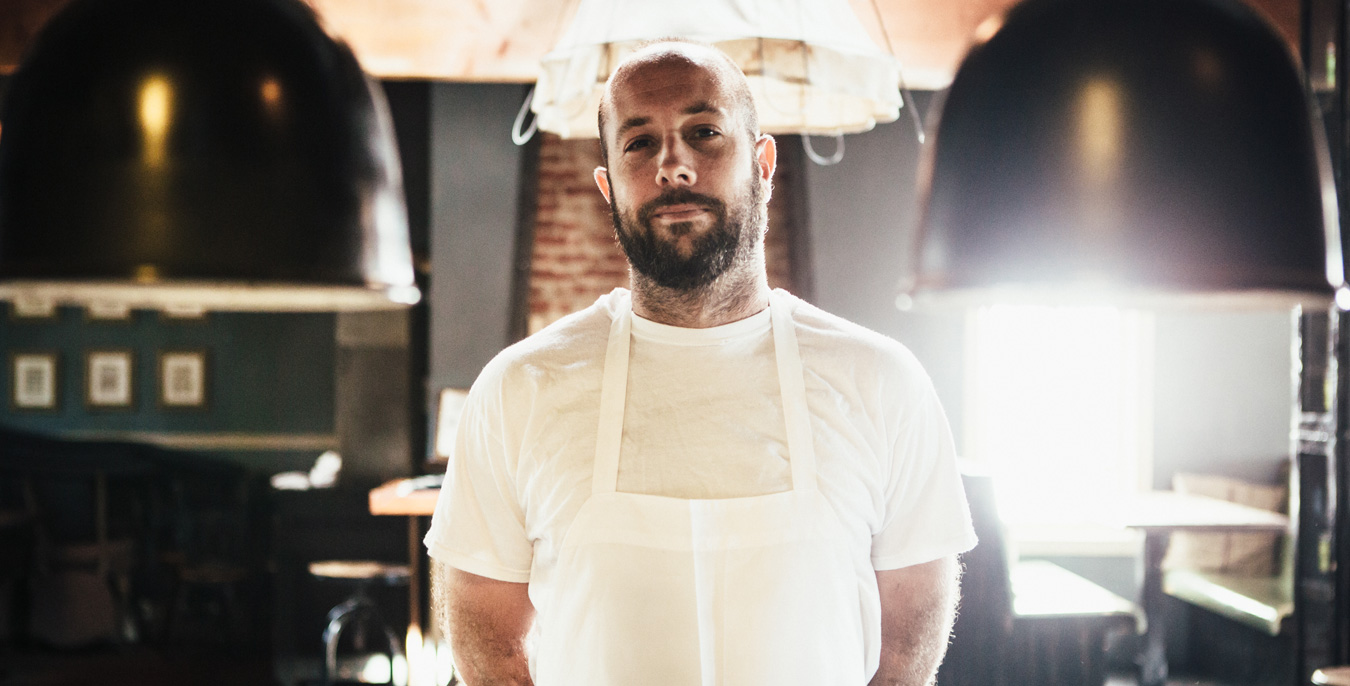

Our comments section is for members only.
Join today to gain exclusive access.